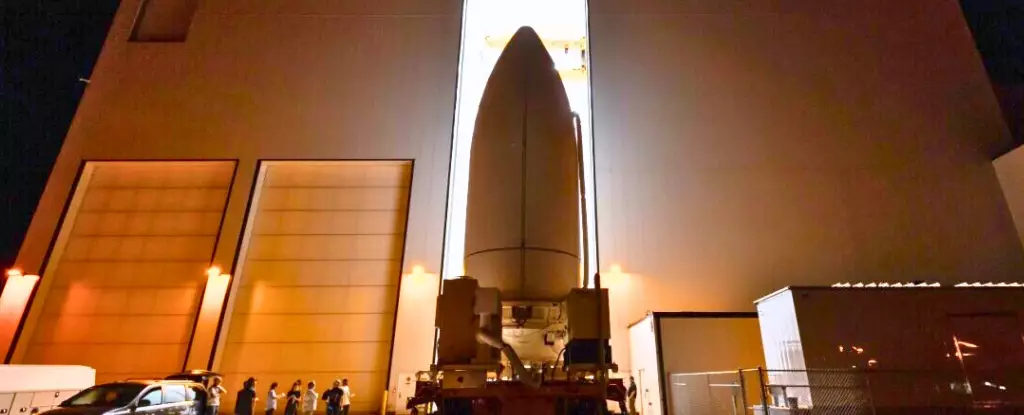Amazon is on the verge of making a profound impact on global connectivity with its impending launch of Project Kuiper satellites. Anticipated to take place next week, this mission — aptly dubbed Kuiper Atlas 1 — symbolizes a turning point for the tech megacorporation as it seeks to establish itself in the competitive realm of satellite internet service. The launch, scheduled for April 9 at 12:00 pm EDT from Cape Canaveral, Florida, employs an Atlas V rocket orchestrated by the United Launch Alliance (ULA), highlighting Amazon’s commitment to excellence in execution.
Setting the Stage against Competitors
Entering the fray dominated by SpaceX’s Starlink, which has a significant head start with its 6,750 operational satellites, Amazon’s challenge is substantial. However, the company boasts an ambitious plan to deploy over 3,200 satellites into low Earth orbit, with a clear focus on providing internet access that rivals existing providers. By taking aim at underserved regions — including those affected by war or natural disasters — Amazon’s Project Kuiper positions itself as a harbinger of hope and progress in the quest for universal connectivity.
While the satellite internet space has already seen considerable advancements, particularly by Musk’s endeavors since 2019, Amazon’s subsequent upgrade over its previous prototypes signals a move not just to catch up but to surpass. Recent developments indicate that these satellites will bring enhanced capabilities and performance, potentially changing how infrastructure is approached in remote areas.
Technological Implications and Global Connectivity
The mission is not just about launching satellites; it marks a strategic pivot in Amazon’s broader business model. By intertwining satellite technology with its impressive logistics and data management capabilities, the company capitalizes on synergies that could generate revolutionary changes in multiple sectors, including e-commerce, education, and healthcare. Imagine the transformative power of high-speed internet reaching the furthest corners of the globe, empowering communities that have long been isolated.
Furthermore, the implications extend beyond mere business advantage. The successful deployment of Project Kuiper could catalyze socio-economic growth, potentially enabling entire regions to leapfrog traditional infrastructural barriers. For countries constrained by limited access, the promise of a reliable internet service fosters new opportunities in education, entrepreneurship, and governance.
Looking Ahead: The Future of Satellite Internet
The landscape for satellite internet is becoming a battleground, with not just SpaceX but other formidable players such as China and various European initiatives also gearing up for deployment. Countries like China are ambitiously planning an expansive constellation with 13,000 satellites, and Telesat is adding its unique offerings with 300 additional units. In this context, the race is not merely about launching satellites but about offering sustainable, efficient, and effective internet solutions that enhance the quality of life.
Indeed, while the marketplace is gearing for an intense competition, Amazon’s entry with Project Kuiper showcases a daring assertion that could redefine global internet access. As this launch approaches, one can only anticipate the multifaceted effects it may bring to the world, transforming not merely our connectivity but the very fabric of human interaction itself.


Leave a Reply